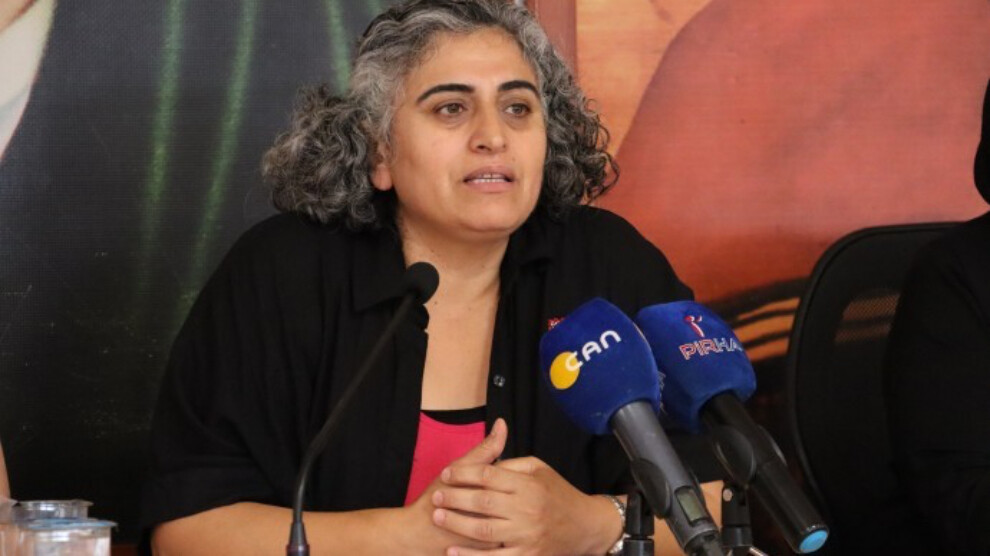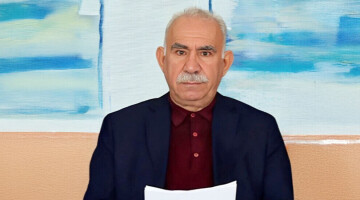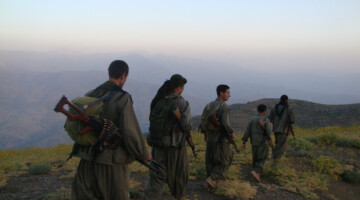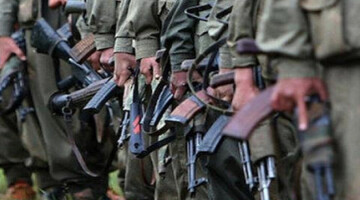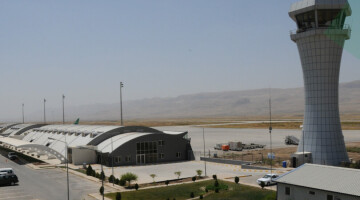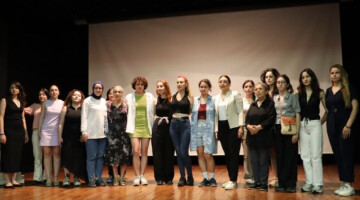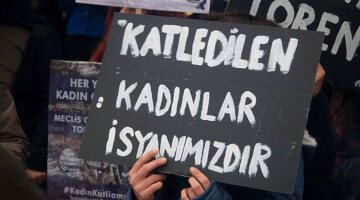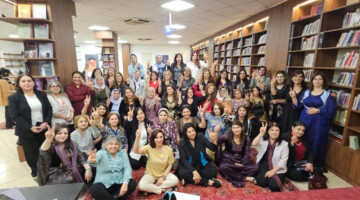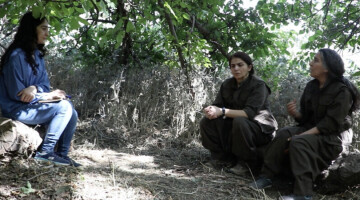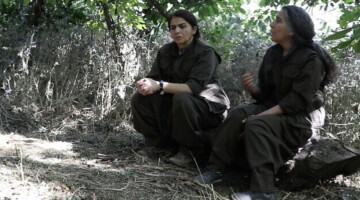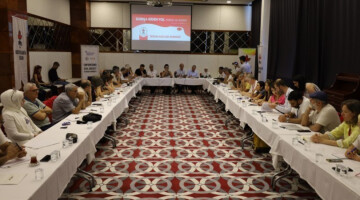The Sultangazi Women’s Solidarity organized a panel under the slogan “Peace through women’s hands, rise with democratic society” at the Gazi Cemevi (Alevi House of Worship) in Istanbul’s Sultangazi district. The panel featured Sebahat Tuncel, an activist for the Free Women’s Movement (TJA), as a speaker. Many participants attended the event, including Peace Mothers, representatives of women’s organizations, the Peoples’ Equality and Democracy Party (DEM Party), and numerous members of the TJA.
Sebahat Tuncel stated that the ongoing conflicts are a continuation of the Third World War and said, “Women’s bodies are turned into battlefields during wars. Women are made into objects of war, and this is a very serious issue. Violence is normalized during times of war. Therefore, the struggle for peace is not a matter of choice, but of necessity. In wars, not only is geography plundered, but women are deeply affected, and the traces of these effects are not easily erased. For us, standing against war holds a principled importance. We have been struggling for years so that peace may prevail. We are often confronted with the question, ‘Is peace possible while oppression continues?’ Turks, Kurds, Laz, Circassians, in short, everyone expresses support for peace in some way, but after the collapse of the resolution process and the implementation of the destruction plan, a state of distrust has emerged among people. That is why it is important to come together, to discuss peace and what we can do.”
The state’s action is crucial
Sebahat Tuncel remarked that the process has moved into a new phase with Abdullah Öcalan’s February 27 ‘Call for Peace and Democratic Society’. She continued: “Öcalan calls for the removal of the obstacles that prevent the recognition, organization, and political participation of different beliefs and identities. In Turkey, neither Alevis nor Kurds are recognized. The policy of denial is constitutionally protected, which is why the issue must be resolved legally. Kurds can become presidents or members of parliament, but they are not allowed to be Kurds. This must change. In this respect, the issue of recognition is very important. The PKK responded positively to Öcalan's call and announced its decision to disband. We are now in a new phase. We are in the second stage, and at this stage, we are faced with the state’s reluctance to take swift responsibility. The state does not say it will not act, but it proceeds slowly. The right to hope is one of these responsibilities, and the state must implement it. In this new period, the state must apply the right to hope, end the trustee regime, and establish a legal process that secures the right to vote and be elected. The state’s action is a crucial point. If these steps are taken, then in the third stage, everyone who supports democratic society will have responsibilities. The silencing of weapons does not mean peace and democracy; this must be secured.”
Those who fight make peace
Tuncel concluded, “Kurds are not only present on the battlefield; they are also building a new life. We do not trust either Erdoğan or Devlet Bahçeli. For us, Öcalan’s involvement in this process is the greatest source of trust. The Kurds advocate for the resolution of issues not through war but through politics. However, it is those who fight who ultimately make peace and sit at the table.”

